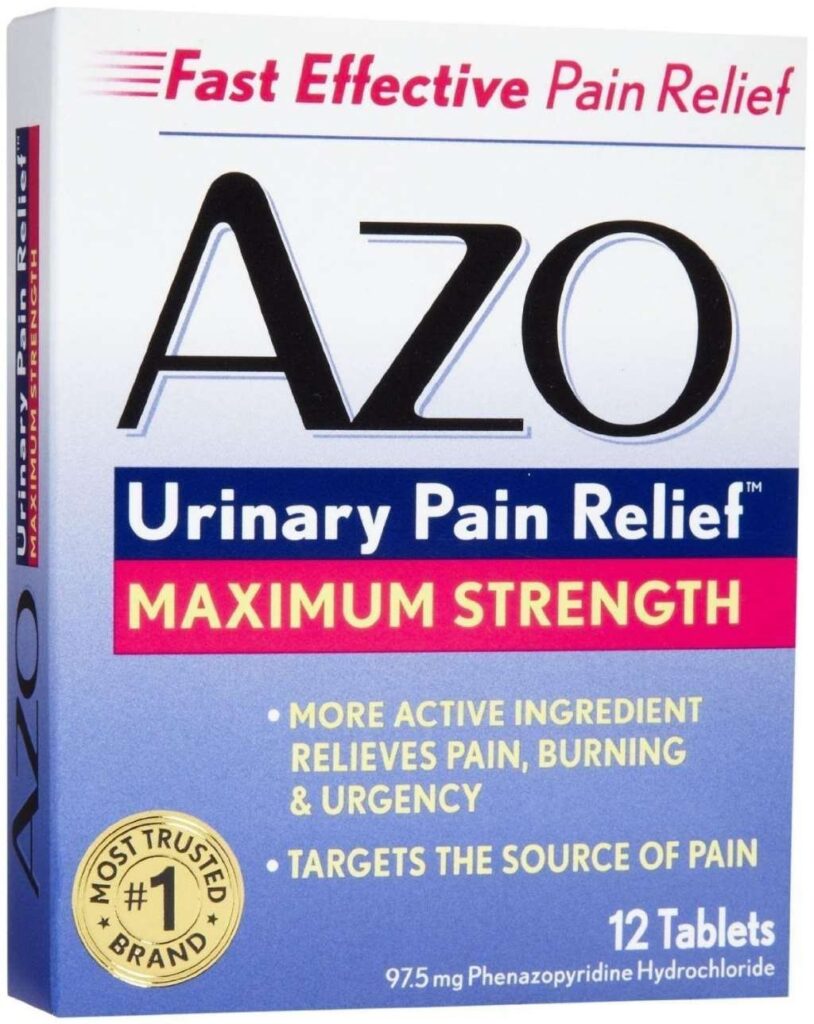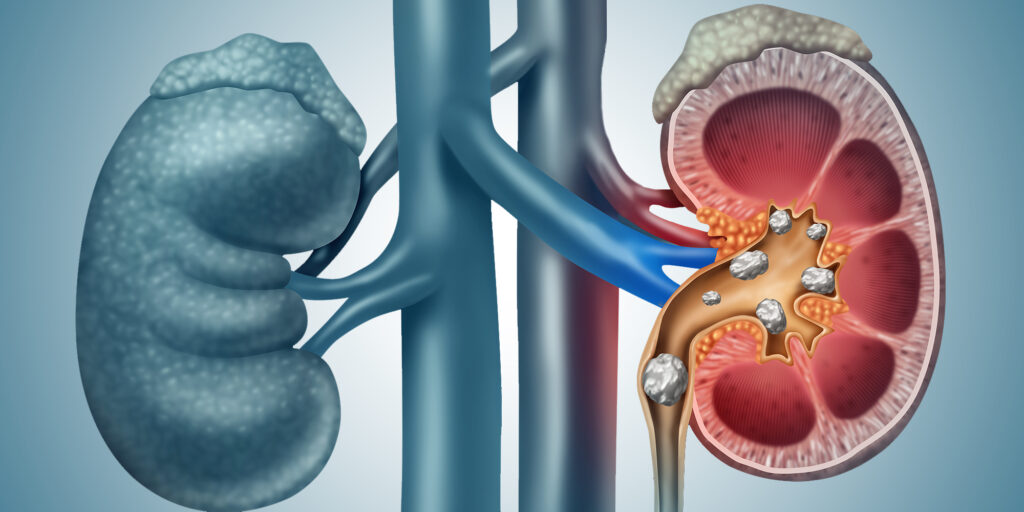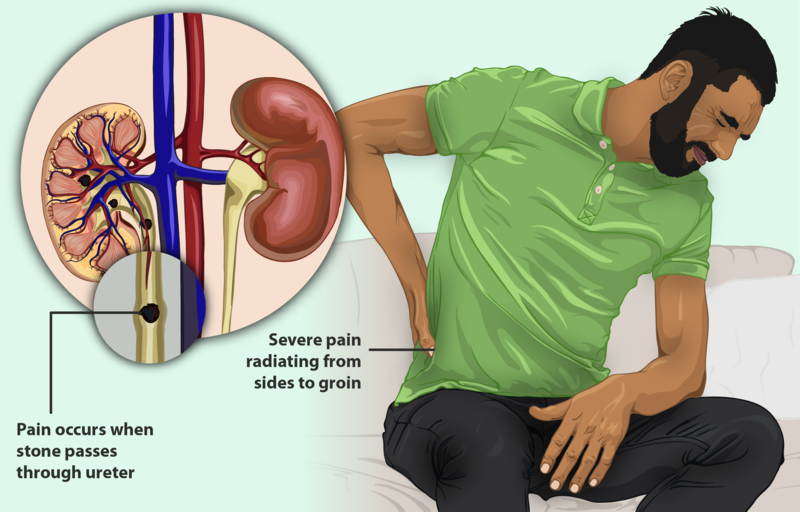Kidney stones are a prevalent condition that affects millions of people worldwide, causing excruciating pain and discomfort. These small, hard mineral deposits that form in the kidneys can lead to urinary problems, including pain during urination, frequent urge to urinate, and blood in the urine. Understandably, individuals who suffer from kidney stones are eager to find solutions to alleviate their symptoms and improve their overall well-being
One name that often surfaces in discussions about kidney stones is Azo. Azo is a widely recognized urinary pain reliever available over the counter. However, misconceptions and myths surrounding its efficacy and role in managing kidney stones have created confusion among those seeking relief. It is crucial to dispel these misconceptions and provide accurate information to help individuals make informed decisions about their kidney stone treatment.
In this article, we aim to debunk common myths and misconceptions surrounding Azo and shed light on its true nature and effectiveness in managing kidney stones. By separating fact from fiction, we can provide clarity and empower individuals to make educated choices regarding their health.
Whether you are someone who experiences kidney stones firsthand, a concerned family member seeking information, or a healthcare professional looking to provide accurate guidance, this article will serve as a valuable resource. Let’s embark on this journey of debunking myths and misconceptions surrounding Azo for kidney stones, ensuring that individuals receive the correct information to make informed decisions about their health and well-being.
What is Azo?
Azo is an over-the-counter medication widely recognized for its primary use as a urinary pain reliever. Its active ingredient, phenazopyridine, provides relief from the discomfort associated with urinary tract infections (UTIs), interstitial cystitis, and other urinary conditions. When individuals experience symptoms such as pain, burning sensation, or urgency during urination, Azo can help alleviate these discomforts and improve overall urinary well-being.

The mechanism of action of Azo involves its local anesthetic effect on the lining of the urinary tract. Phenazopyridine works by directly numbing the nerves in the urinary system, which reduces pain and discomfort. It does not directly target the underlying cause of kidney stones but rather focuses on providing temporary relief from associated symptoms.
Recommended: Does AZO Help With Kidney Stones?
It is important to note that Azo is not an antibiotic and does not treat the underlying infection causing UTIs. Instead, it works alongside antibiotics, if prescribed, to manage the painful symptoms while the infection is being treated. Azo can be purchased over the counter without a prescription, making it easily accessible to those seeking immediate relief.
By understanding the purpose and mode of action of Azo, individuals can make informed decisions about its appropriate usage in managing urinary pain related to kidney stones. However, it is crucial to remember that Azo does not treat the underlying cause of kidney stones, nor does it have any direct effect on the composition or dissolution of the stones themselves. Therefore, it is essential to seek proper medical evaluation and guidance to address the underlying issues associated with kidney stone formation.
Myths and Misconceptions Surrounding Azo and Kidney Stones
Myth 1: Azo can dissolve kidney stones
One prevalent misconception about Azo is the belief that it has the ability to dissolve kidney stones. However, this is a myth that needs to be debunked. Azo, as a urinary pain reliever, is not designed to dissolve or break down kidney stones. Its primary purpose is to provide symptomatic relief by numbing the urinary tract and reducing the associated pain and discomfort. It is essential to understand the distinction between pain relief and stone dissolution when considering the role of Azo in kidney stone management.
Recommended: Can Kidney Stones Cause You To Lose Weight?
The dissolution of kidney stones requires specialized medical interventions and treatments tailored to the specific characteristics of the stones. These treatments may include medication, such as citrate or certain types of diuretics, or procedures like extracorporeal shock wave lithotripsy (ESWL) or ureteroscopy with stone removal. These methods directly target the stones to break them down or remove them from the urinary system. Consulting a healthcare professional is crucial to determine the most suitable treatment approach based on the size, location, and composition of the kidney stones.
Myth 2: Azo can prevent future kidney stone formation
Another misconception surrounding Azo is its perceived ability to prevent the formation of future kidney stones. While Azo can provide relief from the symptoms associated with kidney stones, it does not address the underlying causes of stone formation. Kidney stones often develop due to factors such as a high concentration of certain minerals in the urine, inadequate fluid intake, or underlying medical conditions. Preventing future kidney stones typically requires comprehensive lifestyle changes and medical interventions.
To reduce the risk of kidney stone formation, healthcare professionals often recommend measures such as increasing fluid intake, adopting a balanced diet low in salt and oxalate-rich foods, and managing any underlying medical conditions that contribute to stone formation. Azo, while helpful in managing the immediate symptoms, should not be seen as a preventive measure in itself. Consulting with a healthcare professional is crucial for obtaining personalized guidance on preventive strategies based on individual risk factors.
Myth 3: Azo is a substitute for medical treatment
One of the misconceptions surrounding Azo is the belief that it can serve as a substitute for medical treatment when it comes to kidney stones. However, this is an important myth to dispel. Azo should be regarded as a complementary approach for providing symptomatic relief rather than a substitute for medical intervention.
Recommended: Can Your Kidneys Hurt From Coughing?
Kidney stones are complex conditions that require proper medical evaluation, diagnosis, and personalized treatment plans. A healthcare professional will consider various factors such as stone size, location, composition, and the individual’s overall health before recommending the most appropriate course of action. Relying solely on Azo without seeking professional medical advice may delay necessary treatment and potentially worsen the condition. It is important to prioritize medical guidance and follow the recommended treatment plan for managing kidney stones effectively.
Azo as Symptomatic Relief for Kidney Stones
While Azo does not have the ability to dissolve kidney stones or prevent their formation, it can play a valuable role in providing symptomatic relief for individuals experiencing urinary pain and discomfort caused by kidney stones. When taken as directed, Azo’s active ingredient, phenazopyridine, works by numbing the nerves in the urinary tract, thus reducing pain, burning, and urgency.
It is important to note that Azo is not a long-term solution or a treatment for kidney stones. Its primary function is to alleviate the symptoms associated with kidney stones, providing temporary relief during the healing process. It is crucial to consult a healthcare professional for a proper diagnosis and to develop a comprehensive treatment plan that addresses the underlying causes of kidney stone formation.

When using Azo, it is essential to follow the recommended dosage instructions. Exceeding the recommended dose or using Azo for an extended period can lead to potential side effects, such as stomach upset or changes in urine color. If symptoms persist or worsen despite the use of Azo, it is important to seek medical attention for a thorough evaluation and to explore additional treatment options.
Recommended: Can You Poop Kidney Stones Out?
Azo should always be used in conjunction with medical evaluation and treatment for kidney stones. While it can provide temporary relief, it does not address the root cause of the condition. By working closely with a healthcare professional, individuals can develop a comprehensive treatment plan that may include lifestyle modifications, dietary changes, increased fluid intake, and, if necessary, medical interventions such as lithotripsy or surgical procedures.
Alternative Treatment Options for Kidney Stones
In addition to Azo, several alternative treatment options are available for managing kidney stones. These options can help address the underlying causes of stone formation and prevent future occurrences. Non-pharmacological approaches, such as dietary changes, play a crucial role in managing kidney stones. Healthcare professionals often recommend a balanced diet low in sodium, oxalate, and animal protein, as well as increased consumption of water and fluids to promote hydration.
Specific dietary modifications may vary depending on the type of kidney stone present. For example, reducing oxalate-rich foods like spinach and rhubarb is often recommended for individuals with calcium oxalate stones. Moreover, addressing underlying medical conditions, such as hyperparathyroidism or urinary tract infections, can also be important in preventing stone recurrence.
In some cases, medical interventions may be necessary. Extracorporeal shock wave lithotripsy (ESWL) uses shock waves to break down kidney stones into smaller fragments, allowing them to pass more easily. Ureteroscopy with stone removal involves the use of a thin tube to locate and remove stones from the urinary tract. Surgical procedures may be required for larger or more complex stones that cannot be treated with less invasive methods.
Recommended: How Long Does Kidney Failure Take To Kill You?
It is crucial to work closely with a healthcare professional to determine the most appropriate treatment plan based on individual circumstances. They can provide personalized guidance, evaluate the specific characteristics of the stones, and recommend the most effective treatment options for managing kidney stones effectively.
FAQs
Is it safe to use Azo for an extended period of time?
Azo is generally safe for short-term use as directed. However, it is not recommended to use Azo for an extended period without consulting a healthcare professional. Prolonged use or exceeding the recommended dosage may increase the risk of potential side effects. It is important to follow the recommended usage instructions and seek medical advice if symptoms persist or worsen despite using Azo. A healthcare professional can provide guidance on the appropriate duration of use based on individual needs and circumstances.
Can I rely on Azo alone to manage the pain and discomfort of kidney stones?
While Azo can provide temporary relief from the pain and discomfort associated with kidney stones, it is not meant to be relied upon as the sole method of management. Kidney stones are a complex condition that requires a comprehensive approach. It is important to consult with a healthcare professional who can assess the severity of your symptoms and recommend appropriate treatment options. This may include lifestyle changes, dietary modifications, increased fluid intake, and, if necessary, medical interventions. Azo can be used as a complementary measure to alleviate symptoms, but it should be part of a broader treatment plan.
Recommended: Is Protein Powder Good for Your Liver? How To Use Protein Powder Safely
How long does the pain relief from Azo typically last?
The duration of pain relief from Azo can vary from person to person. Typically, the effects of Azo last for a few hours. However, it is important to note that the duration of pain relief may depend on factors such as the individual’s metabolism, the severity of the pain, and the specific formulation of Azo used. It is advisable to follow the recommended dosage instructions and consult with a healthcare professional if the pain persists or worsens.
Are there any potential side effects of using Azo for kidney stones?
While Azo is generally considered safe when used as directed, there are potential side effects that can occur. These may include stomach upset, nausea, headache, dizziness, and changes in urine color. It is important to read and follow the instructions on the product label and be aware of any potential allergies or contraindications. If you experience any severe or concerning side effects, it is recommended to discontinue the use of Azo and seek medical attention.
Can I take Azo if I have other medical conditions or take other medications?
If you have other medical conditions or take other medications, it is important to consult with a healthcare professional before taking Azo. Some medical conditions or medications may interact with Azo, leading to potential complications or adverse effects. Your healthcare provider can assess your specific situation and advise whether it is safe for you to use Azo or if an alternative approach should be considered.
Recommended: What Do Protein Shakes Do For Females? The Complete Guide
Should I consult a healthcare professional before using Azo for kidney stones?
Yes, it is advisable to consult with a healthcare professional before using Azo for kidney stones. While Azo is available over the counter, it is important to ensure its safe and appropriate use. A healthcare professional can provide a proper diagnosis, evaluate the severity of your condition, and recommend a comprehensive treatment plan that may include Azo or other interventions. They can also provide guidance on dosage, and potential interactions, and help monitor your progress to ensure optimal outcomes.
Conclusion
Azo is an over-the-counter urinary pain reliever containing phenazopyridine, which provides temporary relief from urinary pain and discomfort associated with kidney stones. However, it is important to understand that Azo does not dissolve or prevent kidney stones. It is crucial to seek professional medical advice and develop a comprehensive treatment plan that addresses the underlying causes of stone formation.
Misconceptions surrounding Azo include the belief that it can dissolve kidney stones or prevent their recurrence. These are myths that need to be debunked. Azo is best used as a complementary approach alongside proper medical evaluation and treatment.
Alternative treatment options for kidney stones include dietary modifications, increased fluid intake, and medical interventions such as lithotripsy or surgical procedures. Collaborating with healthcare professionals allows for personalized guidance and the selection of the most appropriate treatment options based on individual circumstances.
By understanding the limitations of Azo and combining it with comprehensive treatment plans, individuals can effectively manage kidney stones, alleviate symptoms, and promote long-term urinary health. Prioritizing accurate information, seeking medical advice, and implementing lifestyle changes contribute to the successful management of kidney stones.
